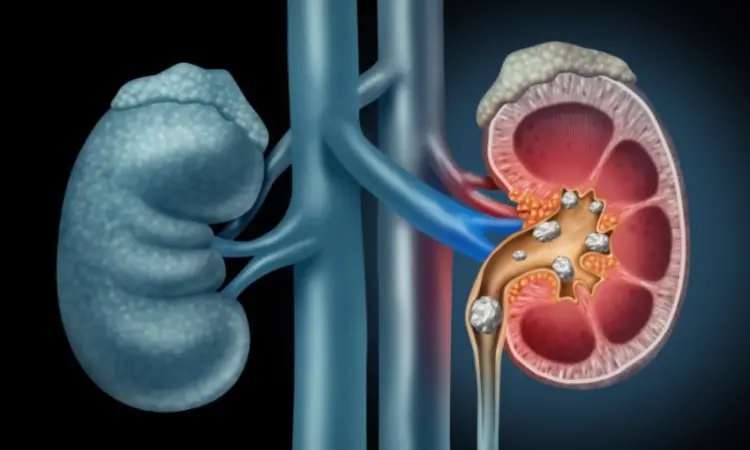- Home
- Medical news & Guidelines
- Anesthesiology
- Cardiology and CTVS
- Critical Care
- Dentistry
- Dermatology
- Diabetes and Endocrinology
- ENT
- Gastroenterology
- Medicine
- Nephrology
- Neurology
- Obstretics-Gynaecology
- Oncology
- Ophthalmology
- Orthopaedics
- Pediatrics-Neonatology
- Psychiatry
- Pulmonology
- Radiology
- Surgery
- Urology
- Laboratory Medicine
- Diet
- Nursing
- Paramedical
- Physiotherapy
- Health news
- Fact Check
- Bone Health Fact Check
- Brain Health Fact Check
- Cancer Related Fact Check
- Child Care Fact Check
- Dental and oral health fact check
- Diabetes and metabolic health fact check
- Diet and Nutrition Fact Check
- Eye and ENT Care Fact Check
- Fitness fact check
- Gut health fact check
- Heart health fact check
- Kidney health fact check
- Medical education fact check
- Men's health fact check
- Respiratory fact check
- Skin and hair care fact check
- Vaccine and Immunization fact check
- Women's health fact check
- AYUSH
- State News
- Andaman and Nicobar Islands
- Andhra Pradesh
- Arunachal Pradesh
- Assam
- Bihar
- Chandigarh
- Chattisgarh
- Dadra and Nagar Haveli
- Daman and Diu
- Delhi
- Goa
- Gujarat
- Haryana
- Himachal Pradesh
- Jammu & Kashmir
- Jharkhand
- Karnataka
- Kerala
- Ladakh
- Lakshadweep
- Madhya Pradesh
- Maharashtra
- Manipur
- Meghalaya
- Mizoram
- Nagaland
- Odisha
- Puducherry
- Punjab
- Rajasthan
- Sikkim
- Tamil Nadu
- Telangana
- Tripura
- Uttar Pradesh
- Uttrakhand
- West Bengal
- Medical Education
- Industry
Stent less Ureteroscopy abates post-operative Hematuria and LUTS in nephrolithiasis patients

New research That was published in The Canadian Journal of Urology shows that avoiding ureteral stents after ureteroscopy can reduce postoperative gross hematuria and lower urinary tract symptoms in selected patients without increasing any post-operative complications.
Urolithiasis is a common condition that accounts for multiple hospital visits. Poor oral fluid intake, and high intake of animal-derived protein, oxalate, and salt causes the collection of the stones in ureters, bladder, and urethra leading to Urolithiasis. Ureteroscopy is one of the common methods used to visualize the urinary tract and retrieve the obstructing stone. Foregoing ureteral stents after ureteroscopy is a developing practice. There is uncertainty about the stentless ureteroscopy procedure. Hence researchers from the Department of Urology, the University of California San Francisco, San Francisco, California, USA conducted a prospective case-cohort study to evaluate the clinical characteristics as well as the postoperative course of urolithiasis patients undergoing a ureteroscopy (URS) without stent placement.
The study was carried out by utilizing data collected in the Registry for Stones of the Kidney and Ureter (ReSKU) from a single institution between October 2015 and December 2020. All consecutive patients undergoing URS for the stone disease were identified and their data encompassing demographics, medical history, intra, and postoperative characteristics, including complications and postoperative symptoms, was analyzed. Univariate and multivariate logistic regression analyses were performed based on the presence or absence of an indwelling ureteral stent.
Results:
Out of 470 patients who were included in the analysis, 92 patients were in the stentless group (19.5%).
A reduced stone burden, the presence of an existing ureteral stent, the lack of an access sheath, and a shorter operating time were factors related to stent-less ureteroscopy.
Stent-less patients reported less Postoperative gross hematuria and lower urinary tract symptoms (LUTS).
There was no difference in postoperative complications between both groups (15.2% vs. 12.0%, p = 0.385).
The risk of postoperative complications was associated with obesity, stone burden ≥ 1 cm, and positive preoperative urine culture On multivariate analysis.
No patient required emergent stent placement in the stentless group.
Thus, It is possible to reduce postoperative gross hematuria and LUTS in carefully chosen individuals by forgoing ureteral stent insertion after URS without increasing postoperative complications.
Further reading: Hamouche F, Unno R, Hakam N, et al. Clinical and postoperative characteristics of stentless ureteroscopy patients: a prospective analysis from ReSKU. Can J Urol. 2023;30(3):11532-11537.
BDS, MDS
Dr.Niharika Harsha B (BDS,MDS) completed her BDS from Govt Dental College, Hyderabad and MDS from Dr.NTR University of health sciences(Now Kaloji Rao University). She has 4 years of private dental practice and worked for 2 years as Consultant Oral Radiologist at a Dental Imaging Centre in Hyderabad. She worked as Research Assistant and scientific writer in the development of Oral Anti cancer screening device with her seniors. She has a deep intriguing wish in writing highly engaging, captivating and informative medical content for a wider audience. She can be contacted at editorial@medicaldialogues.in.
Dr Kamal Kant Kohli-MBBS, DTCD- a chest specialist with more than 30 years of practice and a flair for writing clinical articles, Dr Kamal Kant Kohli joined Medical Dialogues as a Chief Editor of Medical News. Besides writing articles, as an editor, he proofreads and verifies all the medical content published on Medical Dialogues including those coming from journals, studies,medical conferences,guidelines etc. Email: drkohli@medicaldialogues.in. Contact no. 011-43720751



